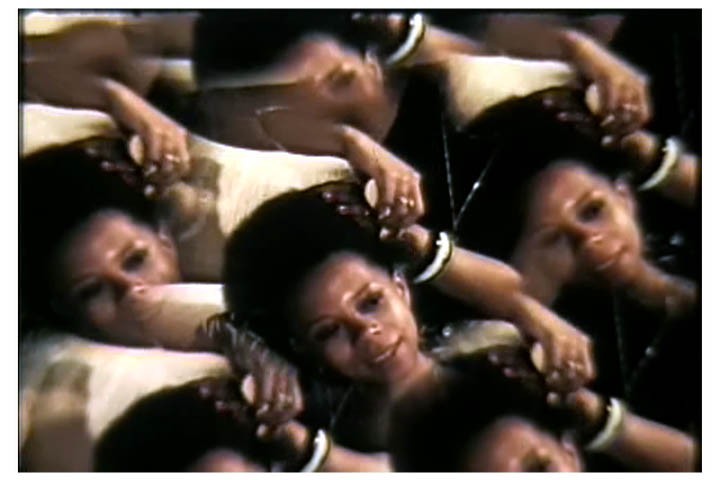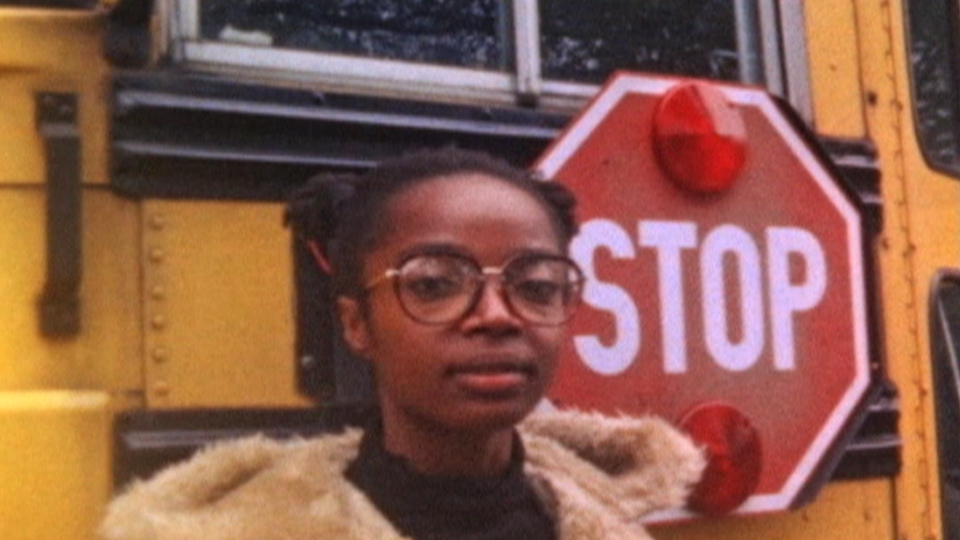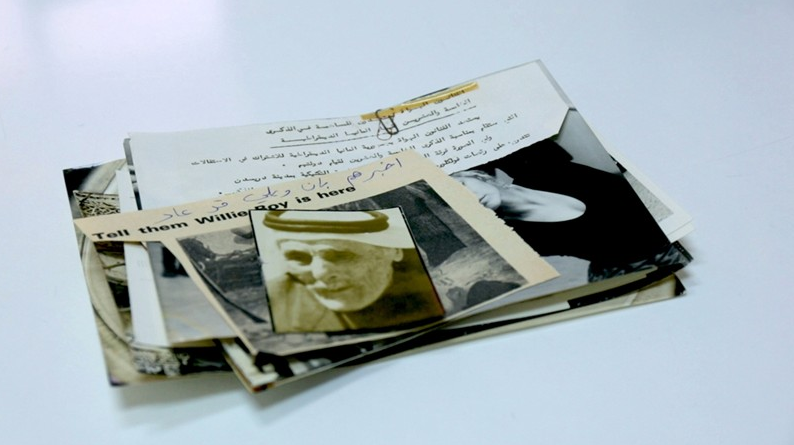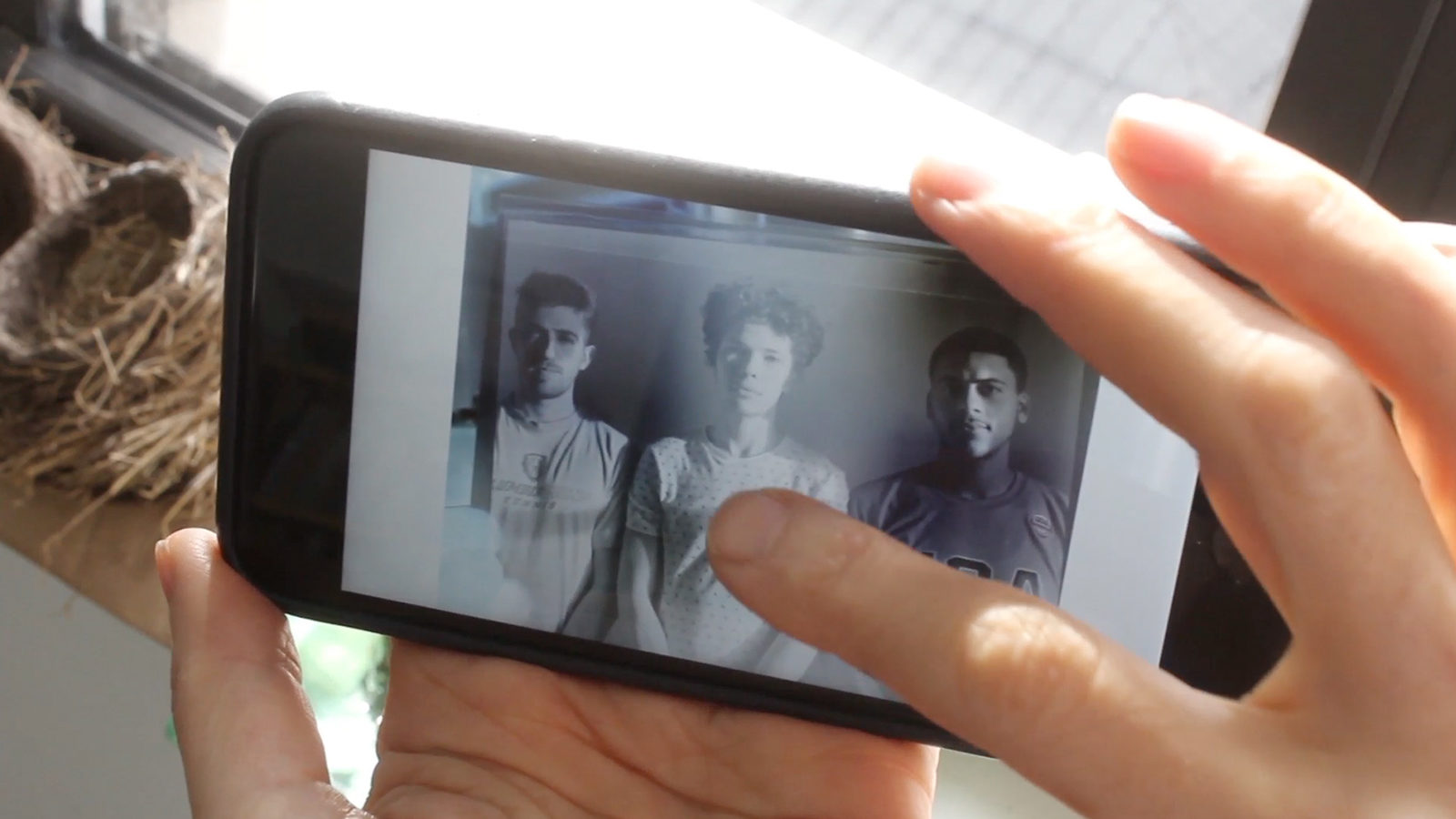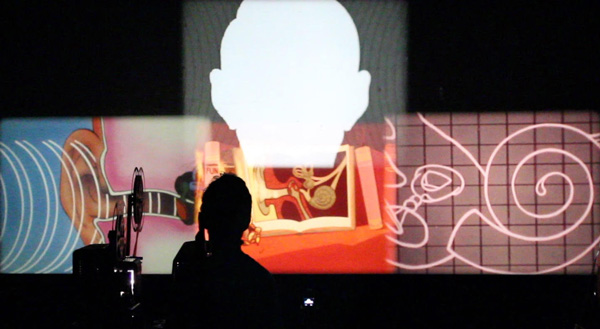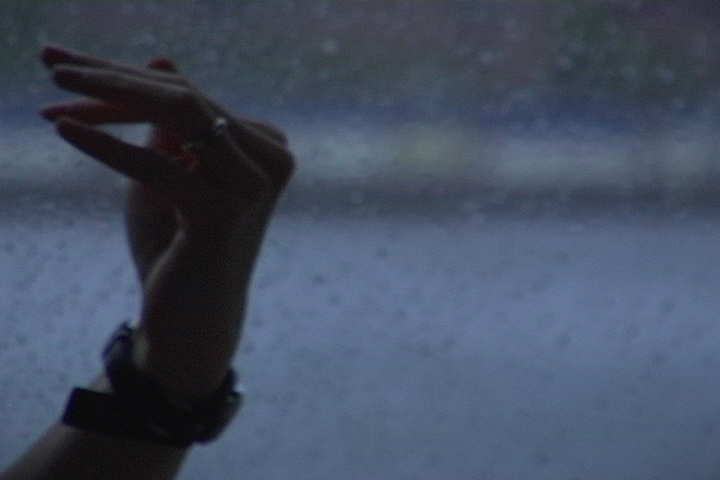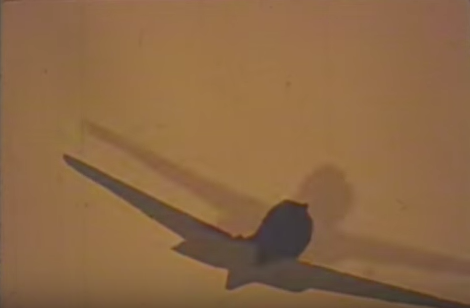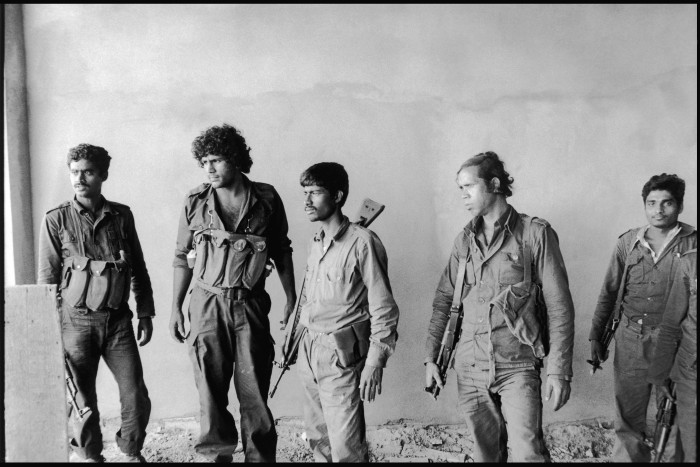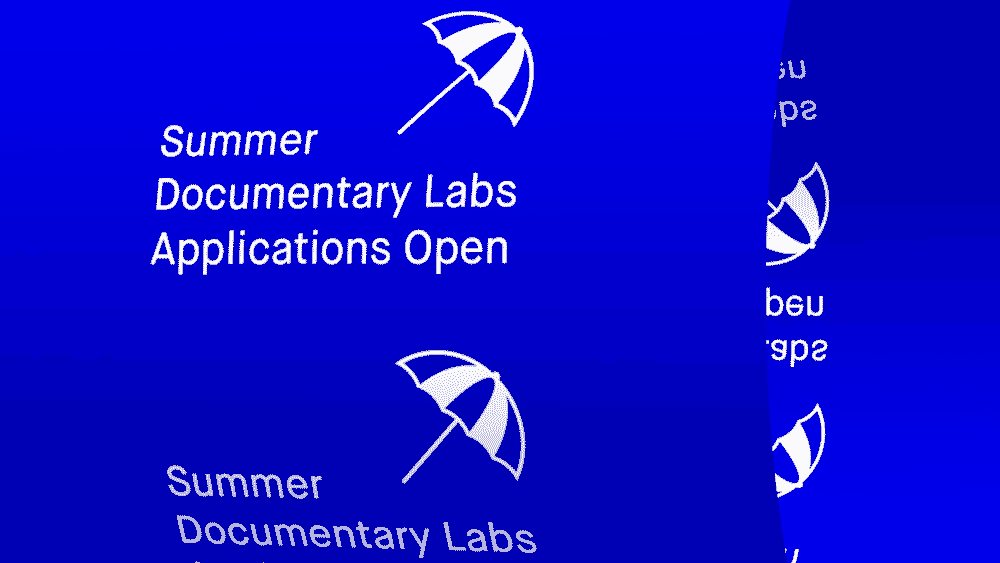The essay film “is never more alive than when the times are more repressive and the dominant aesthetics occupy more squarely in the middle of the road,” so writes renowned French filmmaker Jean-Pierre Gorin in Nora Alter and Timothy Corrigan’s new collection of writings Essays on the Essay Film. With digital technology more available than ever, media artists have the opportunity to construct distinct, multi-faceted responses – both visual and highly personal – to those social issues that most concern them. In tonight’s program, we will explore the multiple meanings of what an essay film is with workshop instructors Akosua Adoma Owusu and Roger Beebe, who will present live video essay performances. In addition, we will watch films by internationally recognized artists Moyra Davey and Naeem Mohaiemen, both of whom live in New York and were included in Documenta 2017, as well as a short Walter Benjamin inspired film by Lynne Sachs.

- This event has passed.
Sep 8, 2017 at 7:30 pm
A Kaleidoscope of Ideas and Doubts
Screening to be followed by discussion with Lynne Sachs, Akosua Adoma Owusu, & Roger Beebe
Program
Triple Consciousness by Akosua Adoma Owusu
Live Video Essay Performance, 20 min. 2017
Owusu uses various production techniques to visualize a state of triple consciousness, a term she coined in reference to a central tenet of the sociologist and civil rights activist W. E. B. Du Bois’s landmark text The Souls of Black Folk (1903). Du Bois’s double consciousness accounts for the experience of black Americans negotiating a sense of selfhood in the face of discrimination and cultural dislocation. As part of the first generation in her family to be born in the United States, Owusu extends Du Bois’s concept to speak to the crisis of heritage and assimilation for African expatriates and their US-born children. – Jamillah James
“Through my film work, I hope to open audiences to a new dialogue between the continents of Africa and America; one that incorporates more than just stereotypes, but includes both conventionalized and un-conventionalized discourses of race in its service. By creating complex contradictions, I hope that new meaning can emerge and be deposited into the universal consciousness. If I can do this by creating an experience for the audience that enables them to experience what it is like to find oneself, while being foreign in a community, then perhaps I can help that new meaning come to light.” (Akosua Adoma Owusu)
Abu Ammar is Coming by Naeem Mohaiemen
6 min, 2016
Arabic newspapers claim Magnum photographer Chris Steele-Perkins’ image as evidence of Bangladeshi fighters in the PLO (Fatah faction). But go a little deeper into the memory hole, and sediments darken the third world international. The men were “volunteers” we are told, but thirty years later they talk about a migrant labor pipeline and an employee called “The Company Fatah.”
Abu Ammar continues The Young Man Was (2006-now) project’s exploration of the 1970s revolutionary left, and the role of doomed masculinity within its errors; Sarinah Masukor has called it “The Already Too Late – An Archive of Beautiful Doubt.” Co-commissioned by LUX and Independent Cinema International.
Naeem Mohaiemen combines films, installations, and essays to research failed left utopias, incomplete decolonizations, and tragic misrecognition of allies– framed by Third World Internationalism and World Socialism.
Wedding Loop by Moyra Davey
23 min., 2017
Moyra Davey’s Wedding Loop (2017) sees the artist recounting a turbulent series of events at an operatic family gathering, while interspersing notes on auto-fiction, family portraiture, and the legacy of Julia Margaret Cameron alongside responses to writings by authors including Simone Weil, Elena Ferrante, and Karl Ove Knausgaard. While probing the lives and relations of such individuals the artist holds dearest (her five distinctive sisters, her post-adolescent son, her ensemble of cherished wordsmiths), the film draws a kind of coda to two of the artist’s earlier essay films, Hemlock Forest (2016) and Les Goddesses (2011), each of which organize around similar concerns relating to the dynamics of longing, loss, and artistic creation.
Moyra Davey is an artist based in New York, whose work comprises the fields of photography, film, and writing. She has produced several works of film, most recently Wedding Loop (2017) as part of her contribution to this year’s documenta 14. She is the author of numerous publications including Burn the Diaries and The Problem of Reading, and is the editor of Mother Reader: Essential Writings on Motherhood. Davey has been the subject of major solo exhibitions at institutions including Bergen Kunsthall, Norway (2016); Camden Arts Centre, London (2014); Kunsthalle Basel (2010); and Fogg Art Museum at Harvard University, Cambridge, MA (2008). Her work is found in major public collections, including the Museum of Modern Art and the Metropolitan Museum of Art in New York and Tate Modern in London. She was awarded the Anonymous was a Woman Award in 2004.
The Comic Sans Video by Roger Beebe
Live Video Essay, 20min, 2017
“Fragments of a film (er, video) about class, taste, and fonts, held together (temporarily) with live voiceover.” (Roger Beebe)
The Task of the Translator by Lynne Sachs
10 min., 2010
Lynne Sachs pays homage to Walter Benjamin’s essay “The Task of the Translator” through three studies of the human body. First, she listens to the musings of a wartime doctor grappling with the task of a kind-of cosmetic surgery for corpses. Second, she witnesses a group of Classics scholars confronted with the haunting yet whimsical task of translating a newspaper article on Iraqi burial rituals into Latin. And finally, she turns to a radio news report on human remains.
“In The Task of the Translator, Sachs turns her eye to the ways in which we struggle to put words to the horrifying realities of war. In her shifting between the intimate space of a few individuals and the cavernous, echoing ambiguity of larger, moral questions, Sachs stakes out unsettling territory concerning what it means–what it feels like–to be made into unwitting voyeurs of Mankind’s most grotesque doings. At the same time, she is also talking about the way that all artists are, in the end, engaged in the task of the translator: stuck with the impossible task of rendering imponderables, and unutterables into neat representations to be consumed, digested, and perhaps discarded.” (Shira Nayman, author of The Listener and Awake in the Dark)
79 min

Lynne Sachs makes films, installations, performances and web projects that explore the intricate relationship between personal observations and broader historical experiences by weaving together poetry, collage, painting, politics and layered sound design. Strongly committed to a dialogue between cinematic theory and practice, she searches for a rigorous play between image and sound, pushing the visual and aural textures in her work with every new project. Her five essay films took her to Vietnam, Bosnia, Israel, Italy and Germany — sites affected by international war – where she looked at the space between a community’s collective memory and her own subjective perceptions. Recently, after 25 years of making experimental documentaries, Sachs learned something that turned her filmmaking upside down. While working on Your Day is My Night (2013) in NYC’s Chinatown, she saw that her subjects were performing for her rather than revealing something completely honest about their lives. The process of recording guaranteed that some aspect of the project would be artificial. This moved Sachs toward a new type of filmmaking — she invited her subjects to become her collaborators — to work with her to make the film about their lives.
Sachs has made over 25 films, supported by fellowships from the Rockefeller and Jerome Foundations and the New York State Council on the Arts. Her films have screened at the New York Film Festival, the Sundance Film Festival and Toronto’s Images Festival. Her work has also been exhibited at the Museum of Modern Art, the Whitney, Walker Art Center, Wexner Center for the Arts and other venues nationally and internationally.
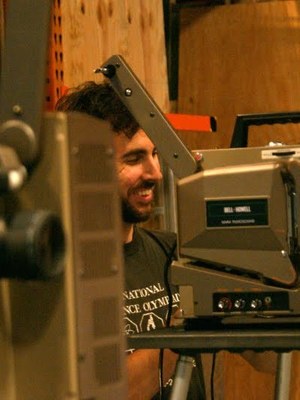
Roger Beebe is a filmmaker whose work since 2006 consists primarily of multiple projector performances that explore the world of found images and the “found” landscapes of late capitalism. He has screened his films around the globe at such unlikely venues as the CBS Jumbotron in Times Square and McMurdo Station in Antarctica as well as more likely ones including Sundance and the Museum of Modern Art with solo shows at Anthology Film Archives, The Laboratorio Arte Alameda in Mexico City, and Los Angeles Filmforum among many other venues. Beebe is also a film programmer: he ran Flicker, a festival of small-gauge film in Chapel Hill, NC, from 1997-2000 and was the founder and Artistic Director of FLEX, the Florida Experimental Film Festival from 2004-2014. He is currently a Professor in the Department of Art at the Ohio State University where he is helping to launch the new Moving-Image Production major in Autumn 2017.
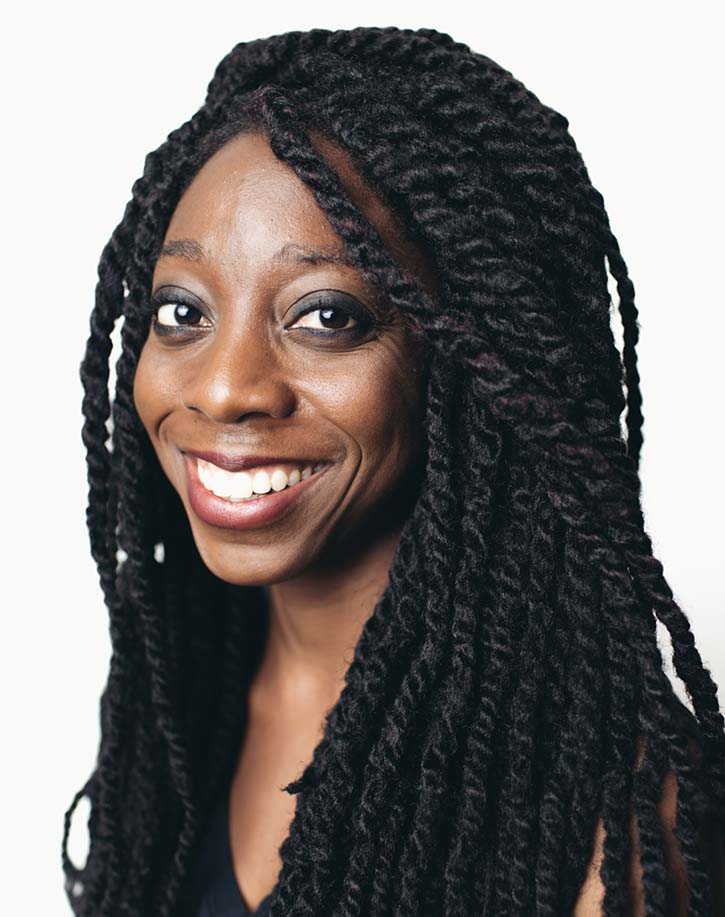
Akosua Adoma Owusu is a Ghanaian-American avant-garde filmmaker and producer whose films have screened worldwide in prestigious film festivals, museums, galleries, universities and microcinemas since 2005. Her work addresses the collision of identities, where the African immigrant located in the United States has a “triple consciousness.” Owusu interprets Du Bois’ notion of double consciousness and creates a third identity or consciousness, representing the diverse consciousness of women and African immigrants interacting in African, white American, and black American culture.
Named by Indiewire as one of the 6 Avant-Garde Female Filmmakers Who Redefined Cinema, and one of The Huffington Post‘sBlack Artists: 30 Contemporary Art Makers Under 40 You Should Know, Akosua Adoma Owusu is a MacDowell Colony Fellow and a Guggenheim Fellow. Founded in 2007, her company, Obibini Pictures, LLC produces unconventional films about multicultural experiences including Reluctantly Queer andKwaku Ananse, which received the 2013 African Movie Academy Award for Best Short Film. Reluctantly Queer was nominated for the Golden Bear and Teddy Award at the Berlinale, Berlin International Film Festival in 2016.

